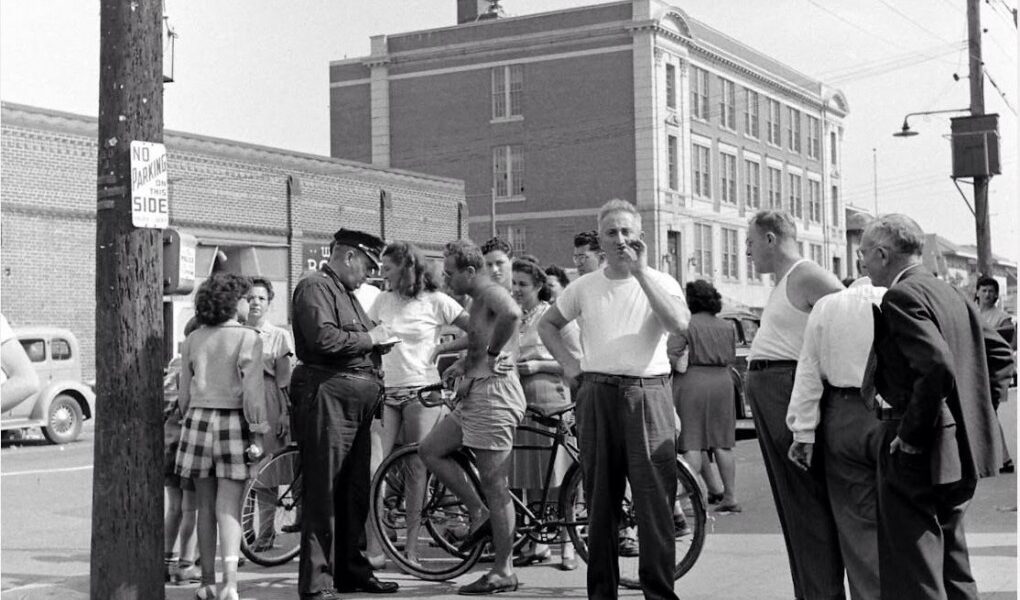Photos of people being ticketed for ‘indecent exposure’ at Rockaway Beach of New York, 1946.H

In these vintage photos, the LIFE magazine photographer Sam Shere captured the “indecent exposure” phenomenon at Rockaway Beach, New York in 1946.
Starting with a sign that reads “wear robes to and from the beach,” Shere’s series shows women sunbathing in high-waisted two-pieces, men walking the boardwalk in just their shorts, and the way in which these beachgoers seem unphased by the cops writing them tickets for “indecent exposure.”
In 1946 it was considered “indecent” when people walked around in their swimsuits anywhere but on the beach itself, and at Rockaway Beach in New York you were expected to wear a robe to and from the beach.
The question of where a bathing suit could be worn says a lot about the changing ways in which people chose to present their body in public in the 20th century: what action did police take to try to restrict bathing suits to the beach, or even to the water only, and what do the controversies surrounding bathing suits in the city reveal about the authorities’ attitudes to women’s and men’s bodies in urban spaces?
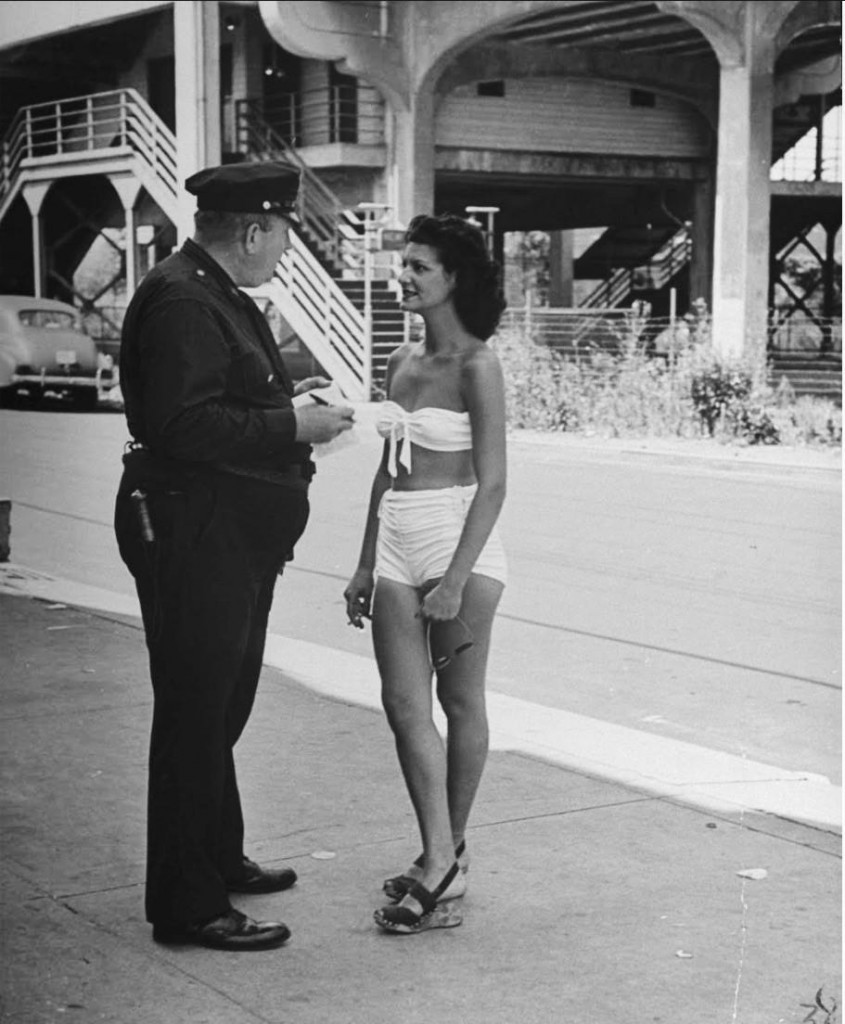
In the early 1910s, most American seaside resorts had in place an ordinance stipulating that a bathing suit covering the shoulders and extending as far as the knees must be worn.
These outfits – a ballooning dress for women and a close-fitting bathing suit for men – were designed only for bathing: once out of the water, bathers were expected to return to the bathing establishment where they could wash and get changed.
From the mid-1910s, this situation began to change as several factors converged. Some of these disrupted the established order, as in the case of the one-piece swimsuit for women – a bathing costume made of dark material that was relatively close-fitting and extended as far as the hips, making it easier to swim.
The arrest of Annette Kellermann, the “Australian Mermaid” famous for her swimming achievements, who was apprehended wearing this new kind of costume on a beach near Boston in 1907, helped to publicize it throughout the US.
Second, the fashion for sunbathing was beginning to spread among the middle and upper classes, and this necessarily encouraged people to uncover their bodies more than previously.
 Men had strict laws to follow; for example, they were not allowed to go to the beach or pool without wearing a shirt in Atlantic City, New Jersey.
Men had strict laws to follow; for example, they were not allowed to go to the beach or pool without wearing a shirt in Atlantic City, New Jersey.
The reason for this law is that they didn’t want it to look as if there were “gorillas on our beaches”. It wasn’t until 1937 that men would sport the infamous swim trunks and no shirt look at summer beach events.
In 1922, if you wore a bathing suit that was too short, you could receive a warrant from the police. They even had “bathing suit” patrolmen who would measure to see if a bathing suit was of proper length standards. Bathing suits back then could not be more than 6 inches above the knees.
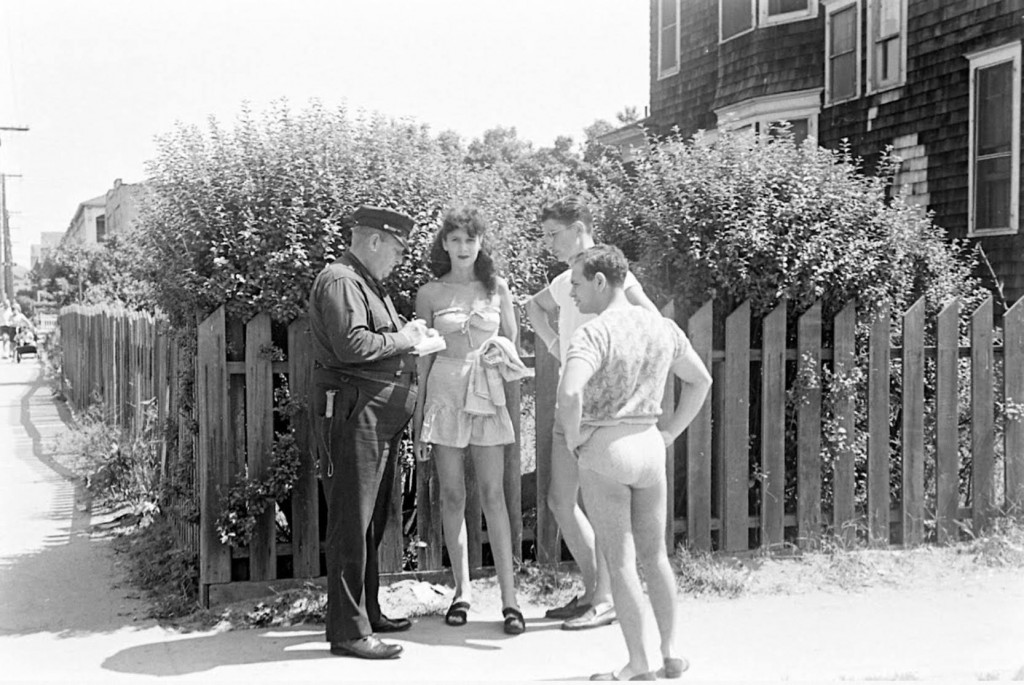
In July 1946, a French mechanical engineer, Louis Reard, introduced the bikini to the world. He saw women rolling up the edges of their swimsuits to tan better, which inspired him to create the design of the bikini.
However, bikini sales did not pick up quickly because women were used to their traditional two-piece suits. On the other hand, upper class European women embraced the bikini look, and helped the trend slowly grow.
By the 1960s, bikinis started to rise in popularity, mostly because of Bond Girl, Ursula Andress’s scene emerging from the ocean in a white bikini in Dr. No.
Because of the rising popularity of two-piece bathing suits, laws started to become more relaxed and less strict.

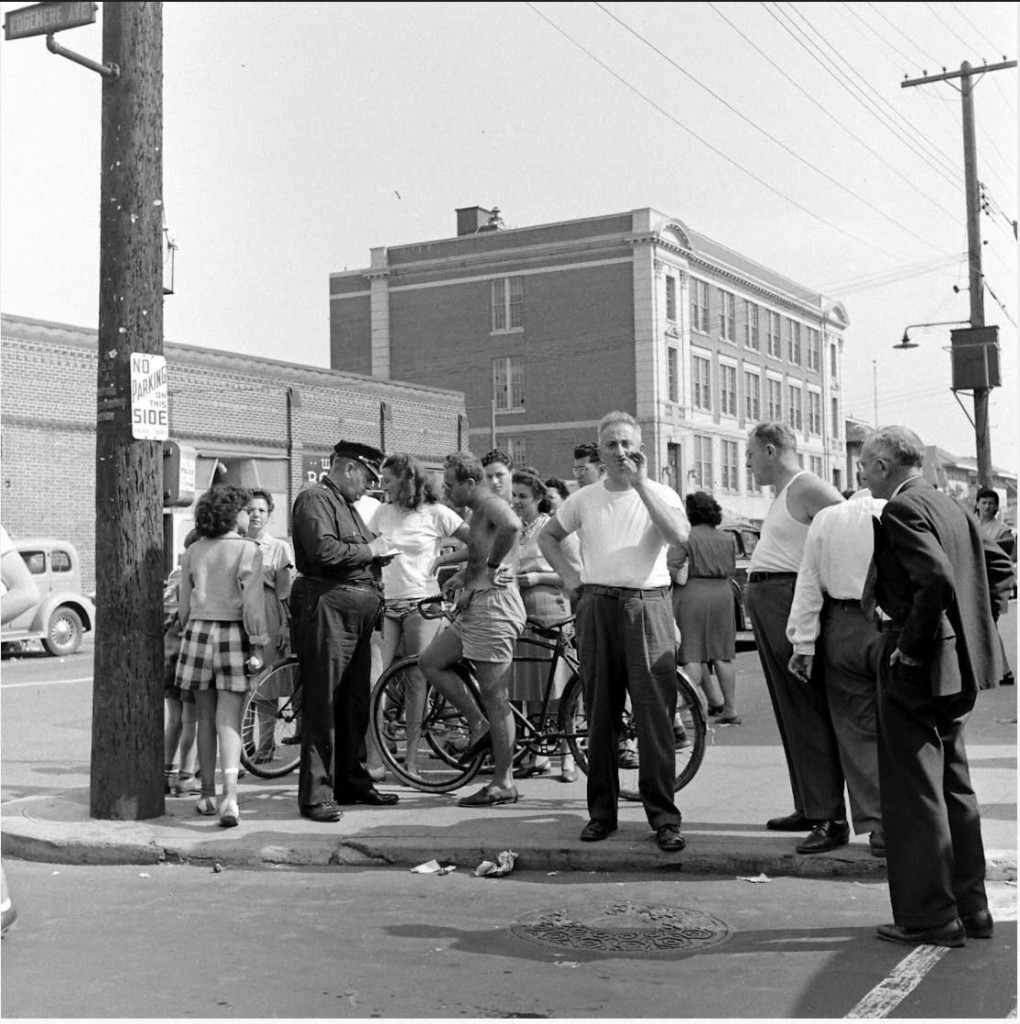
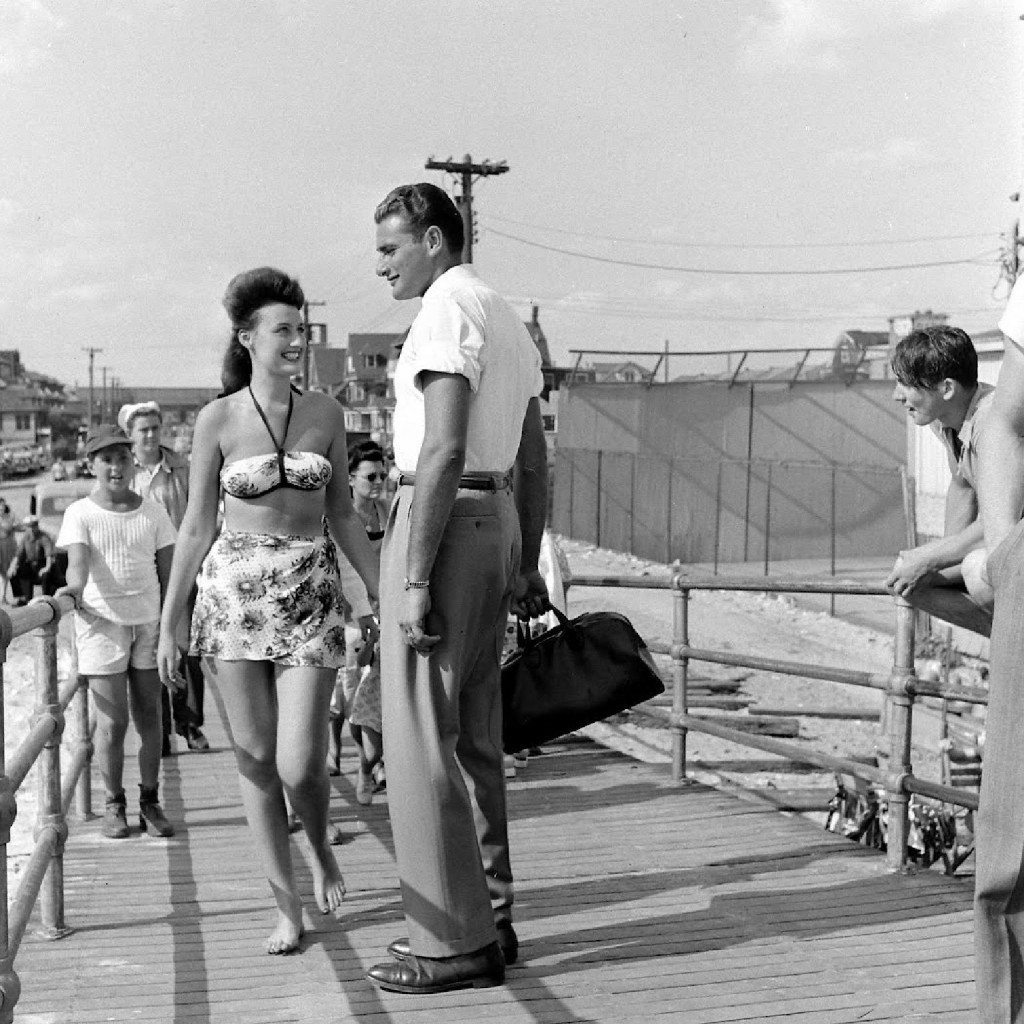
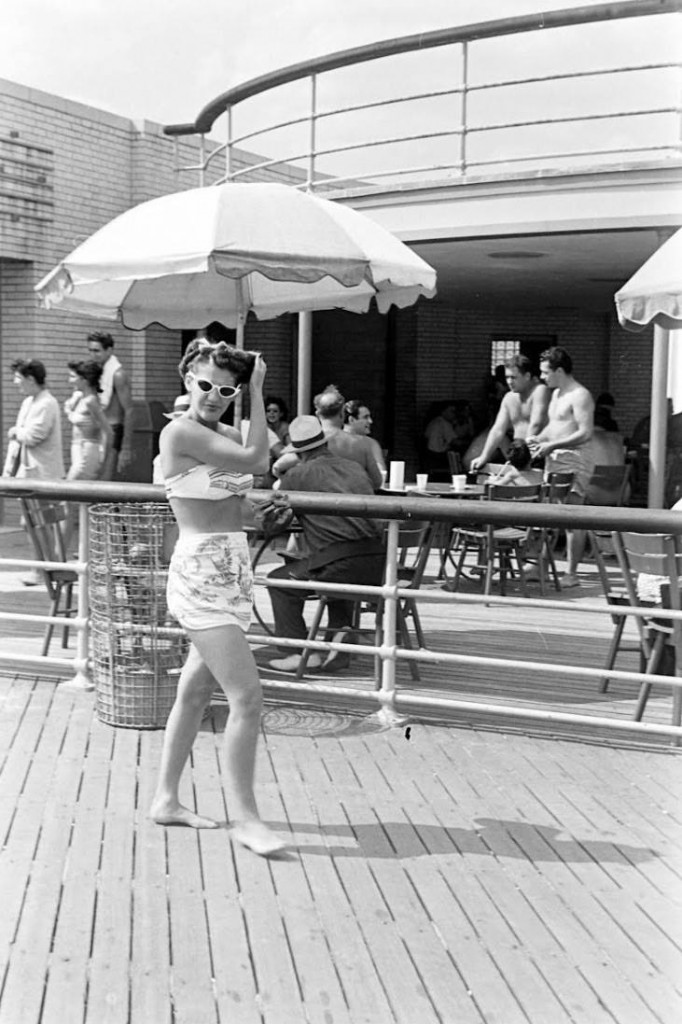

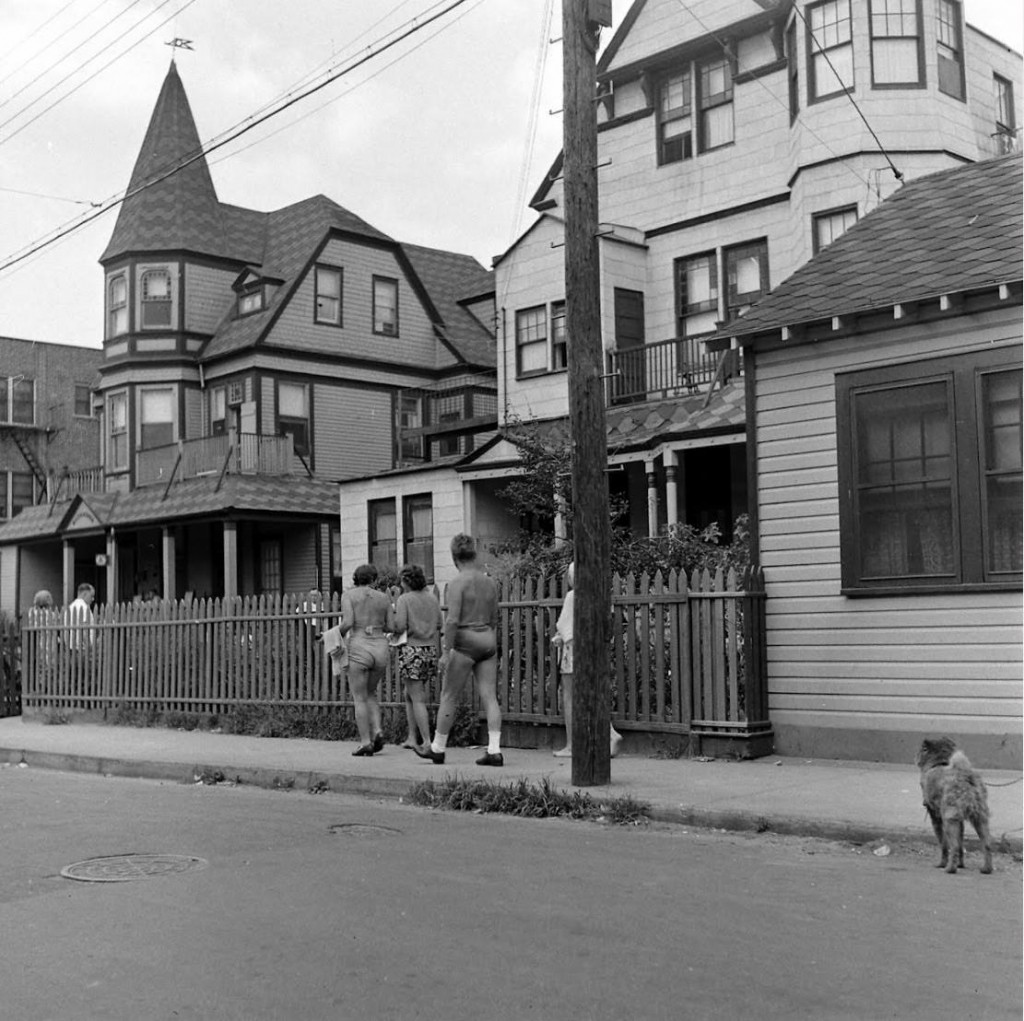
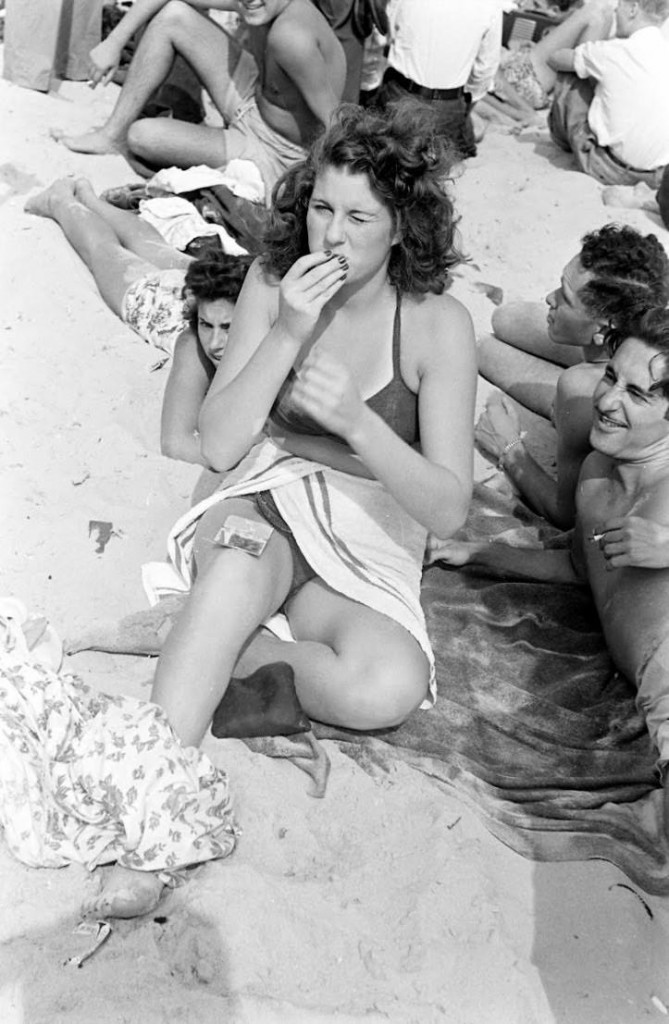
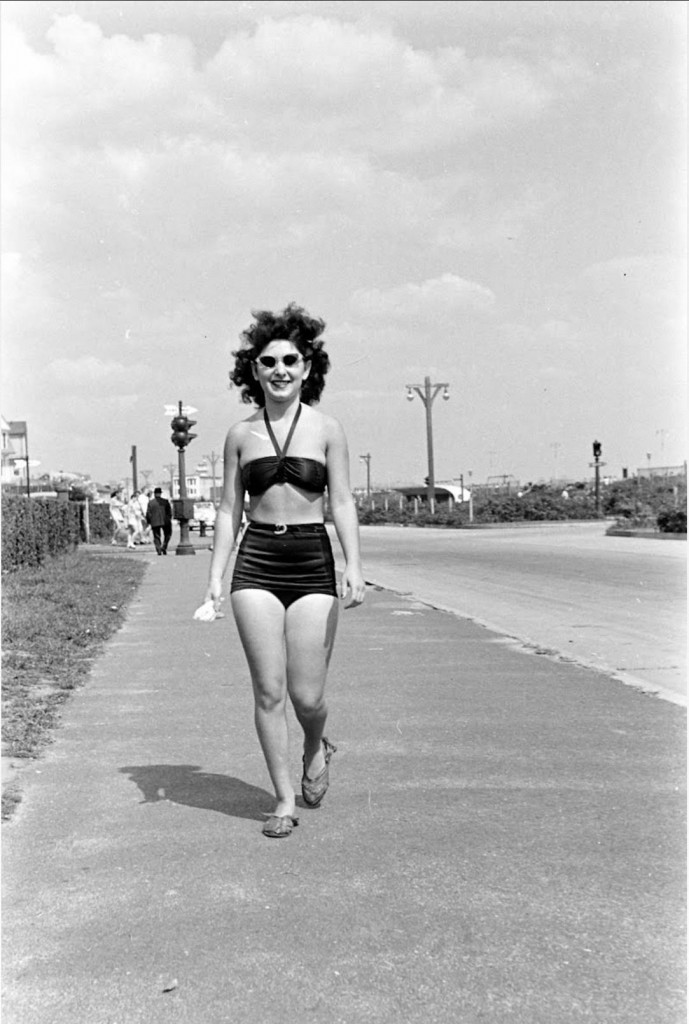
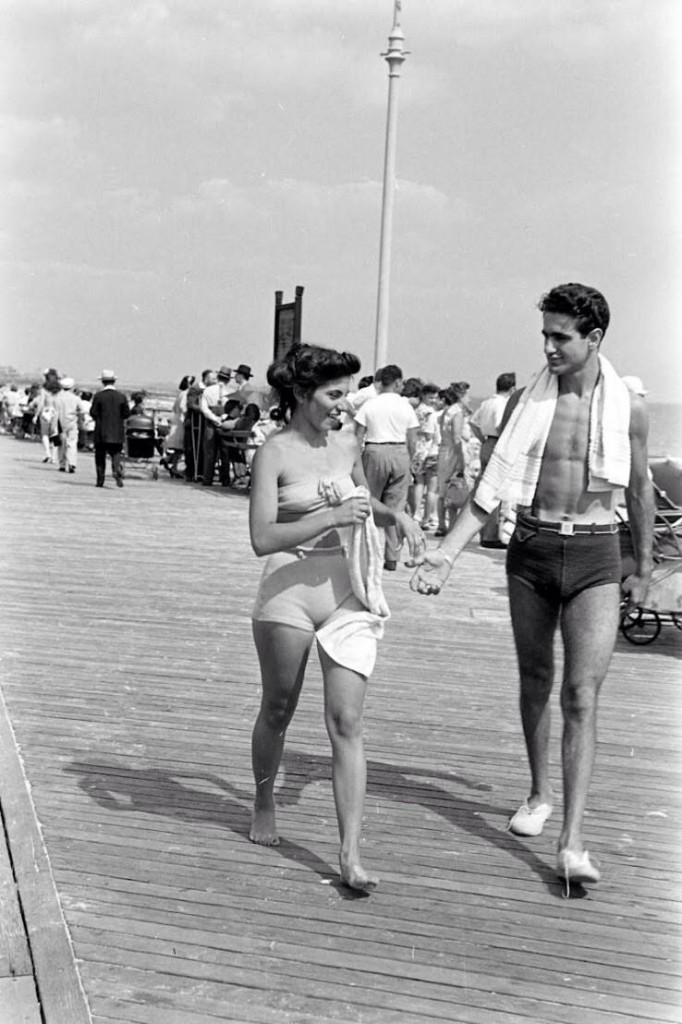



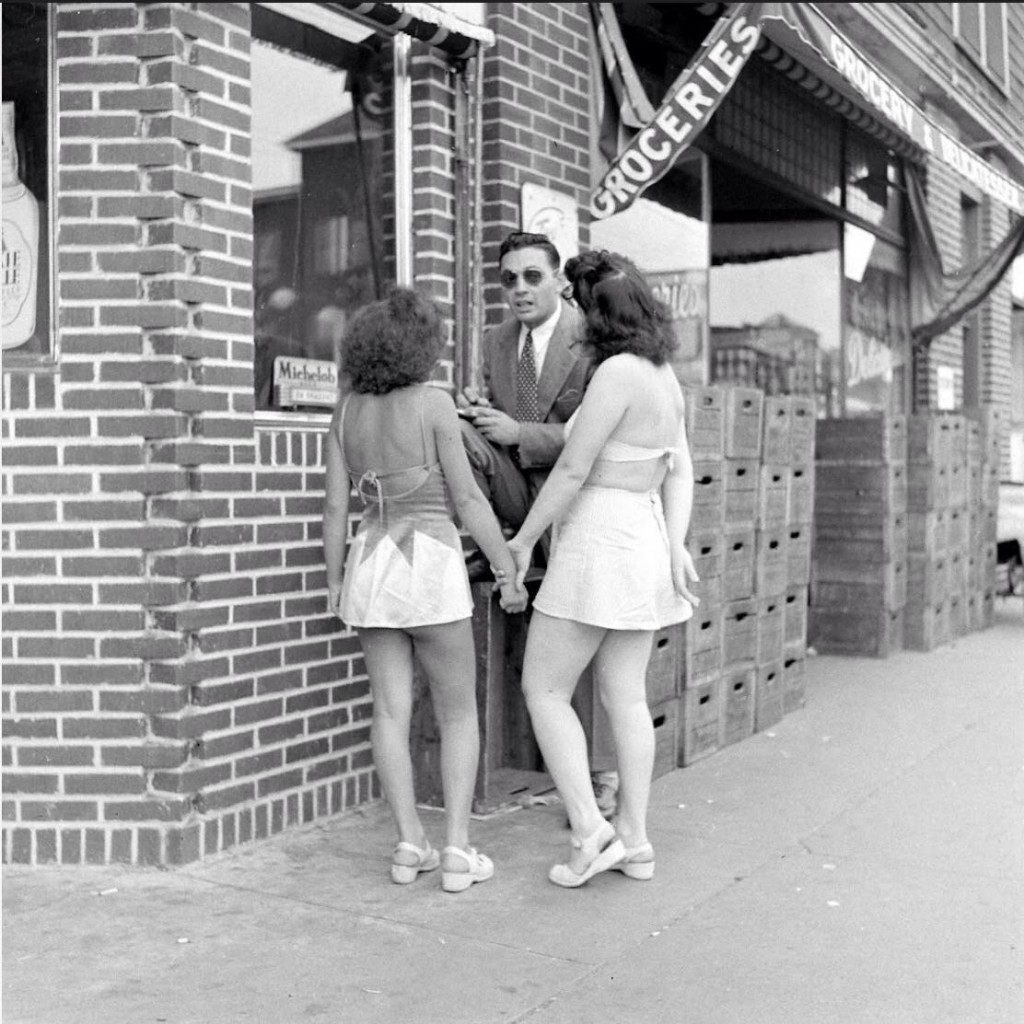

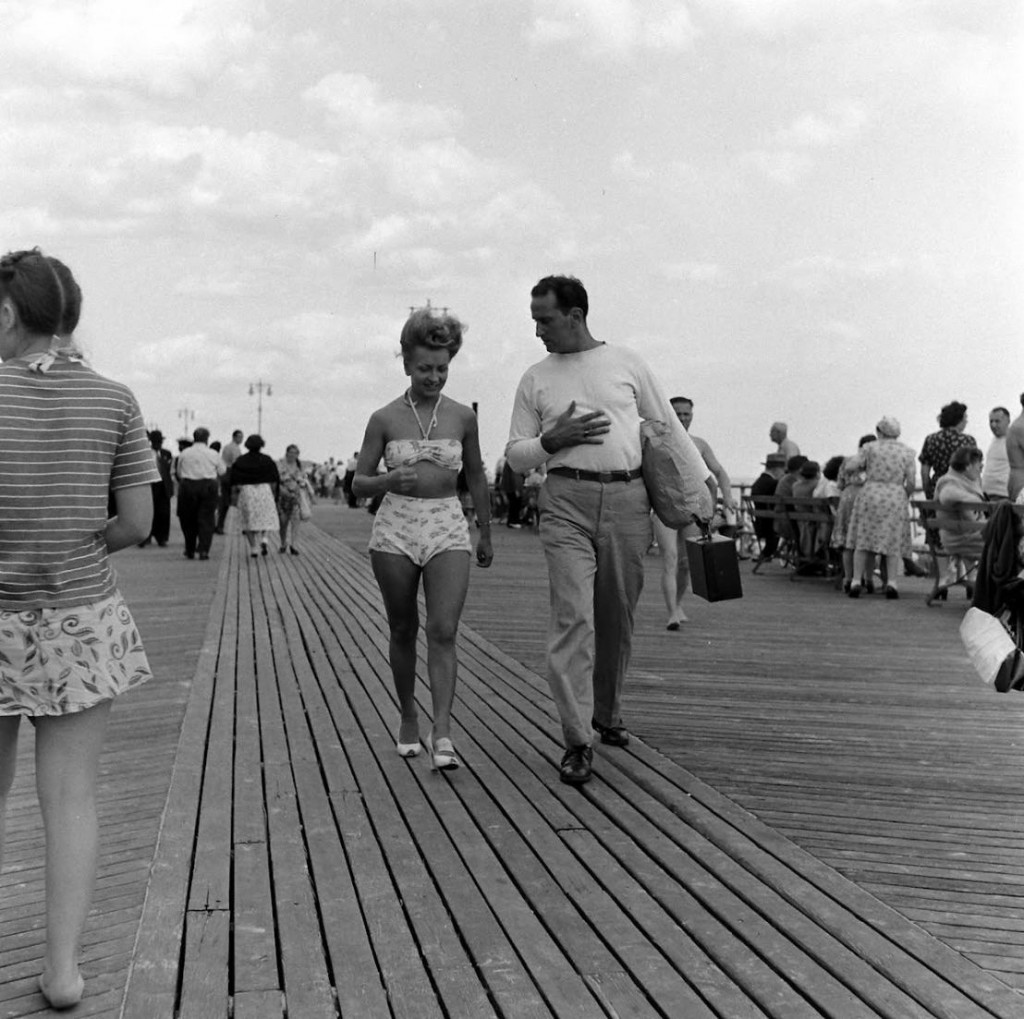
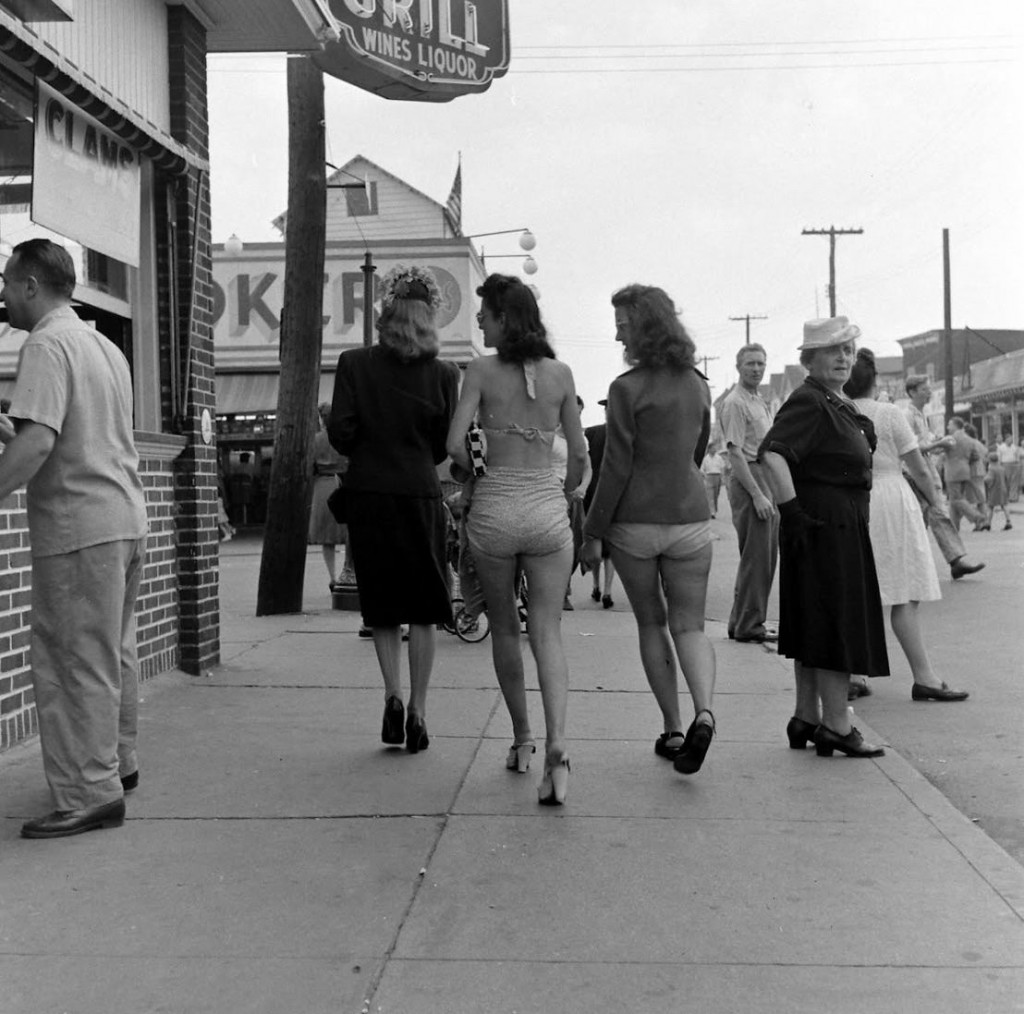
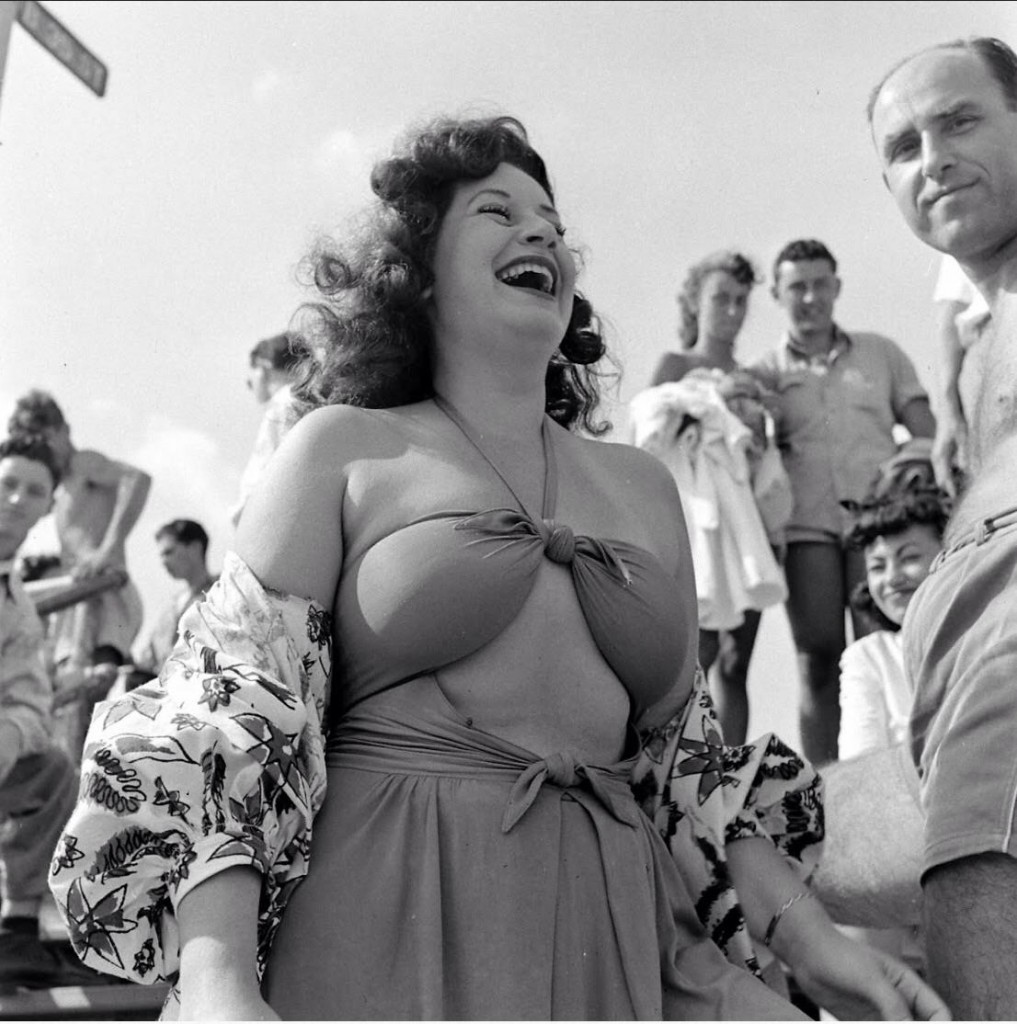
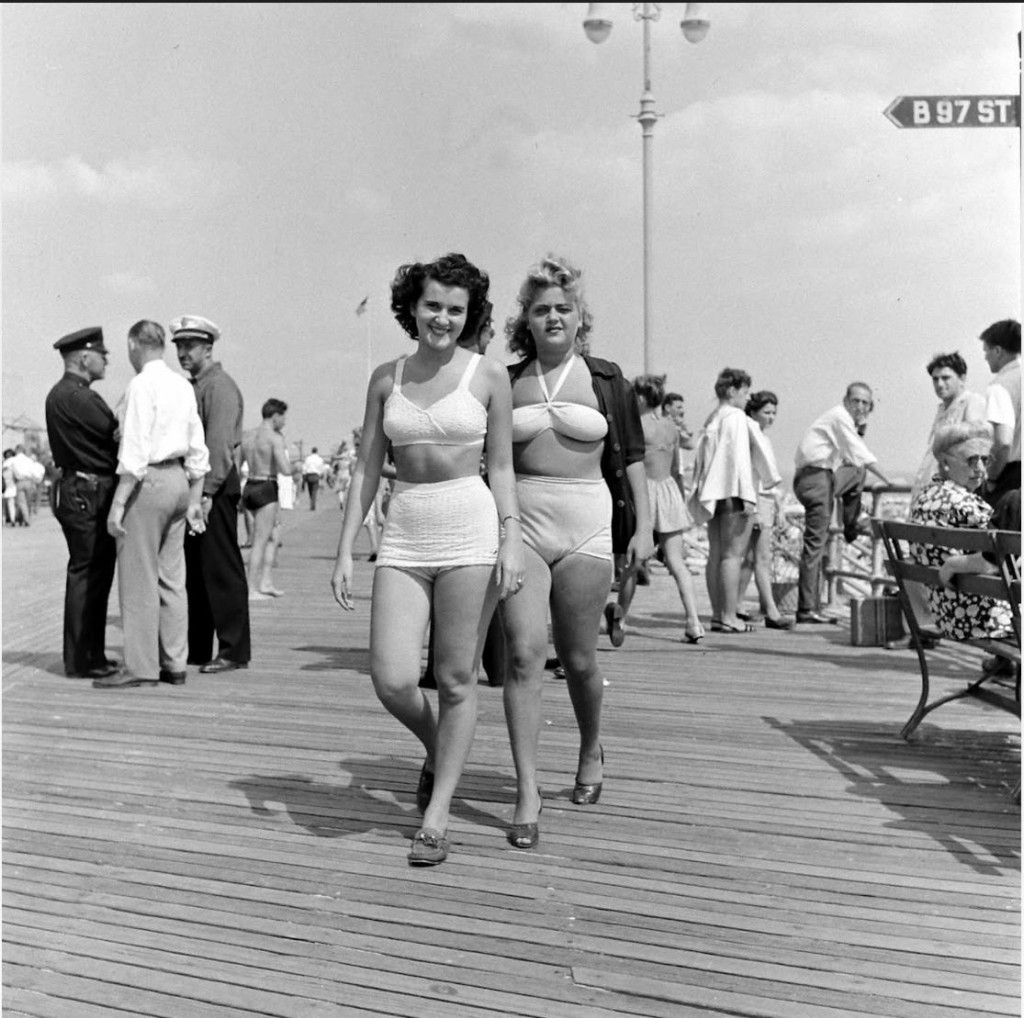

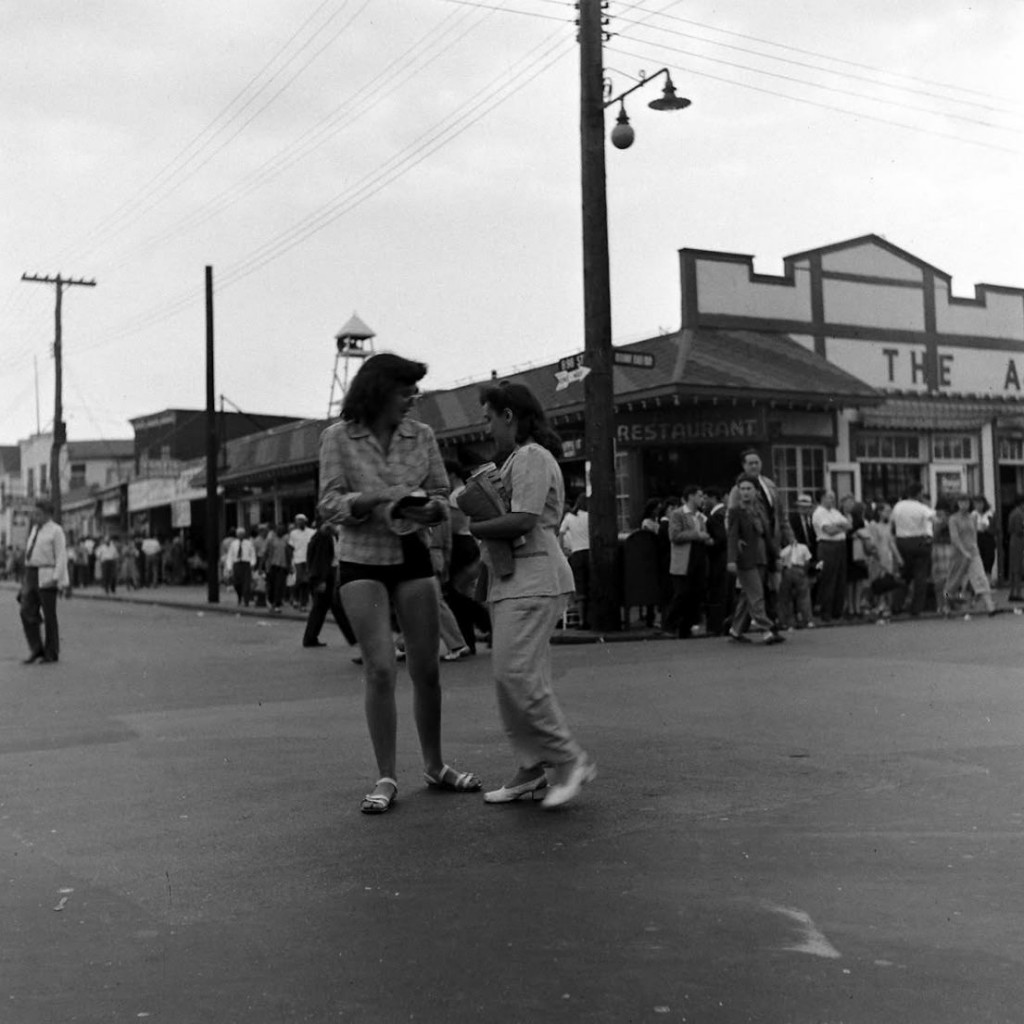
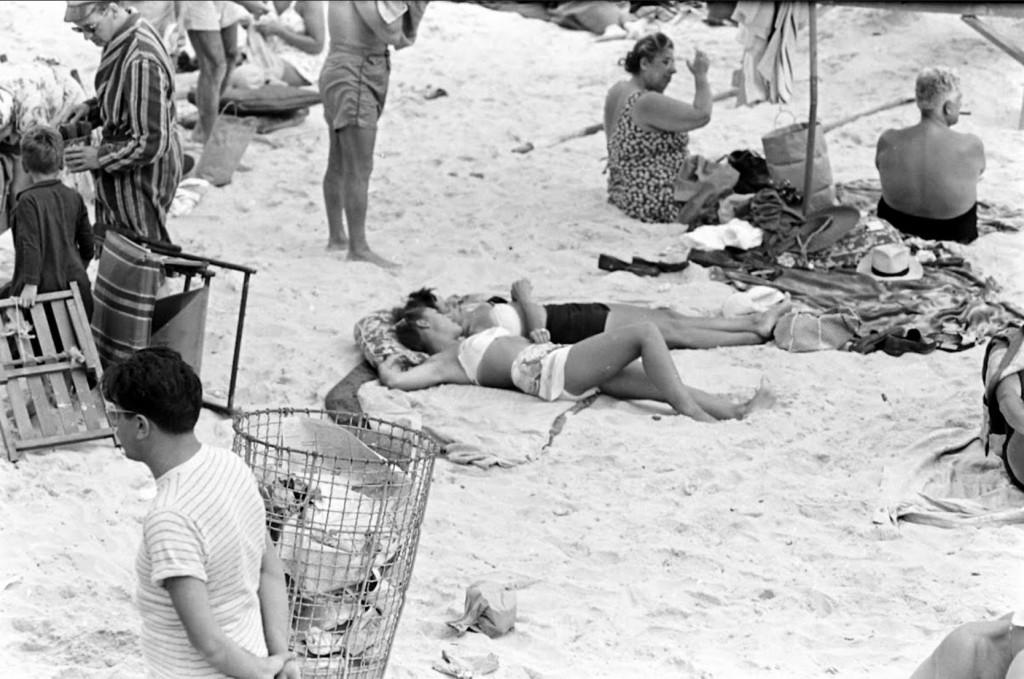

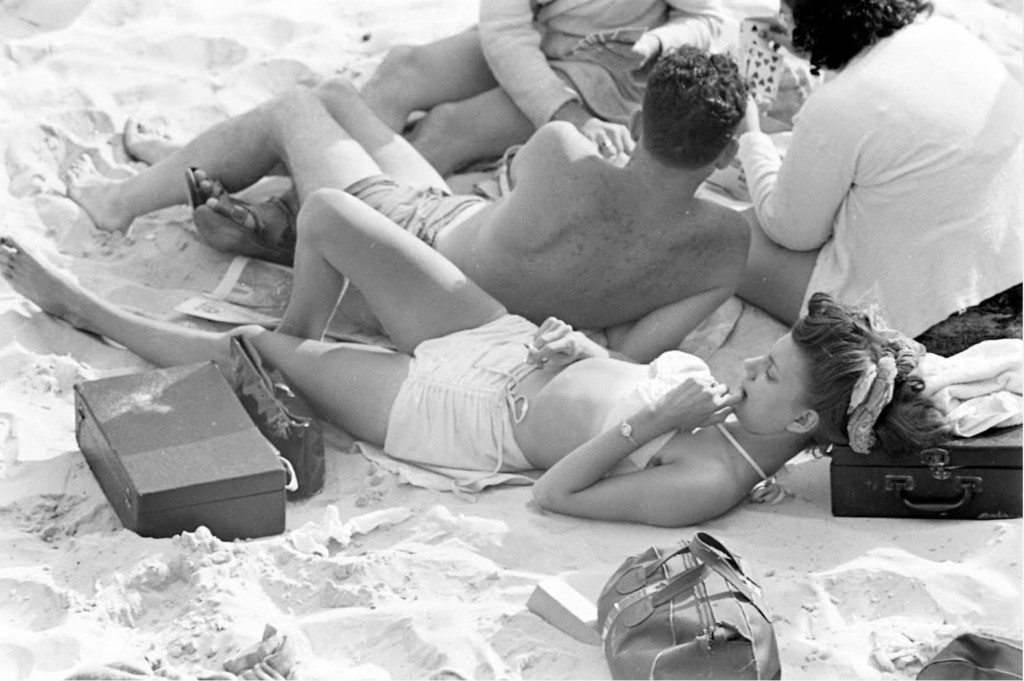
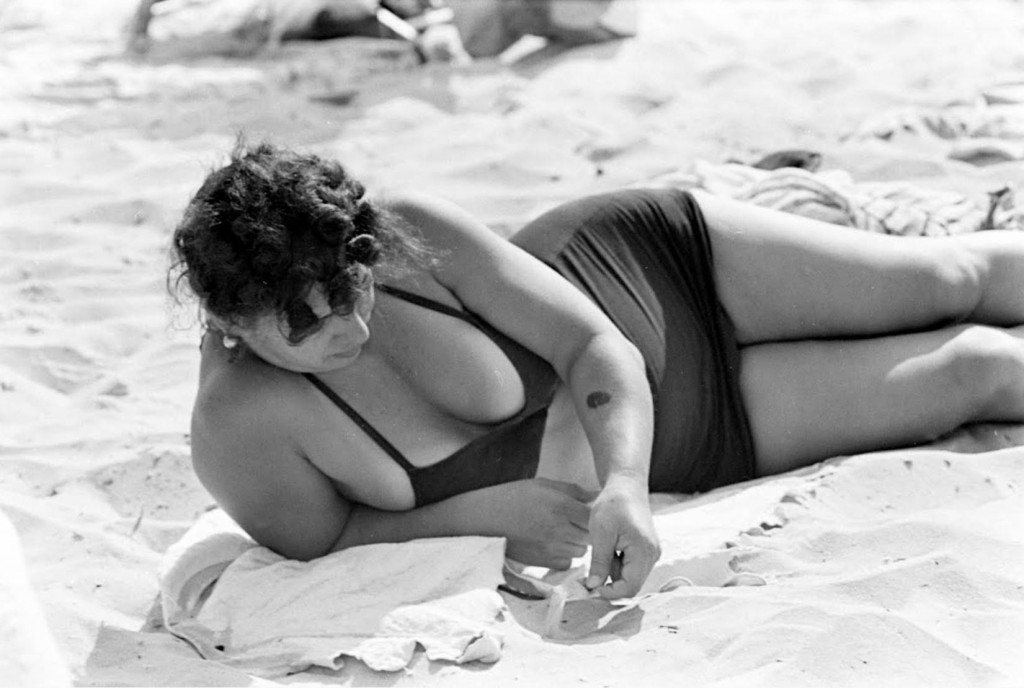
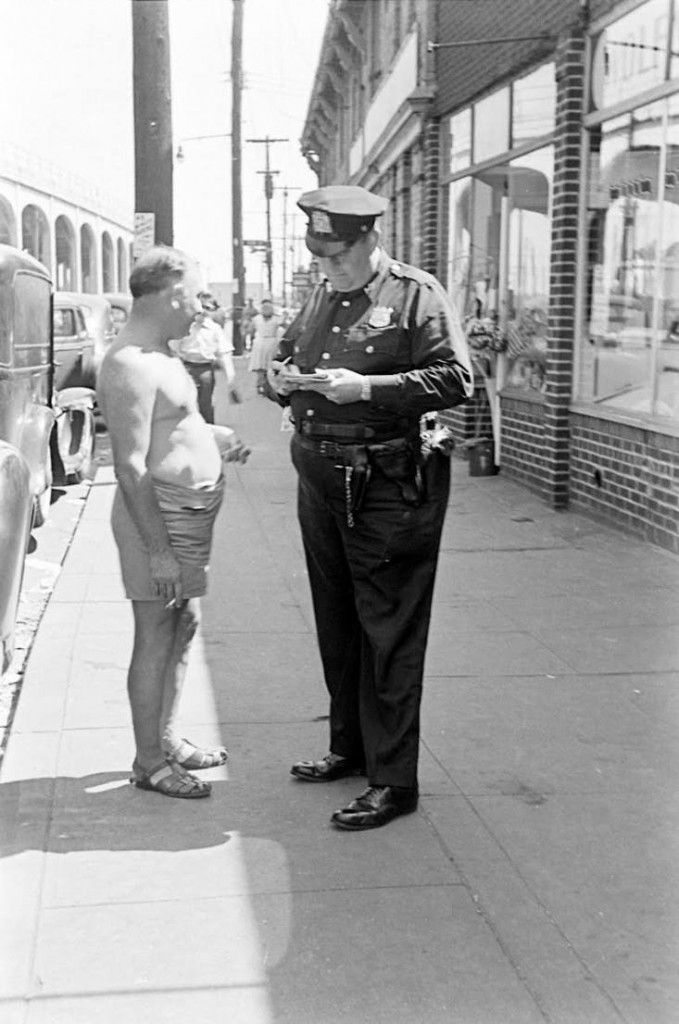
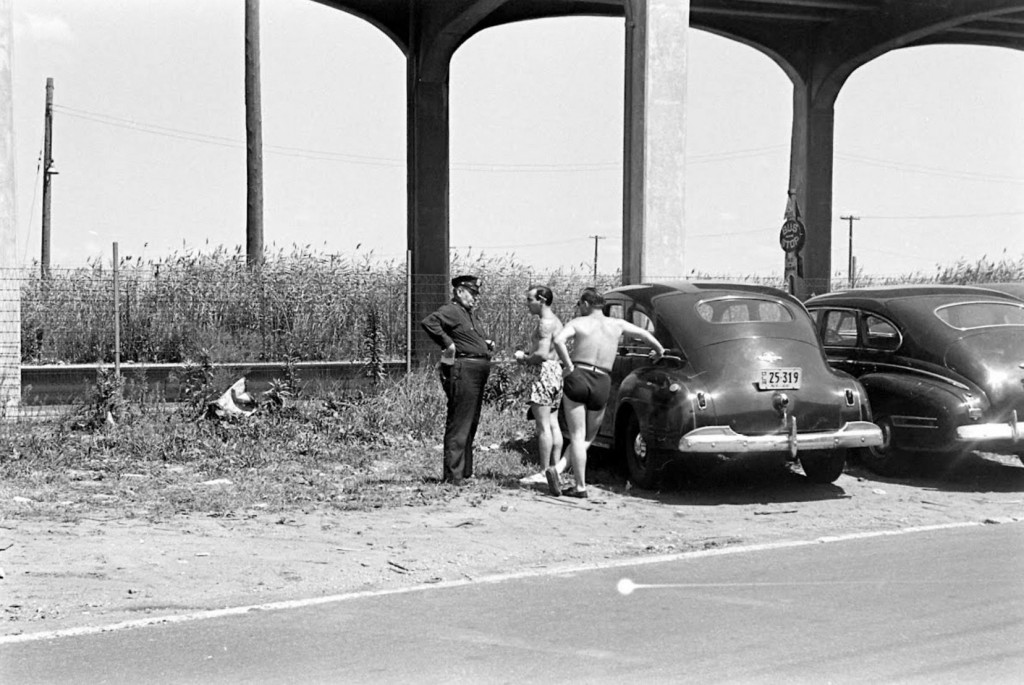
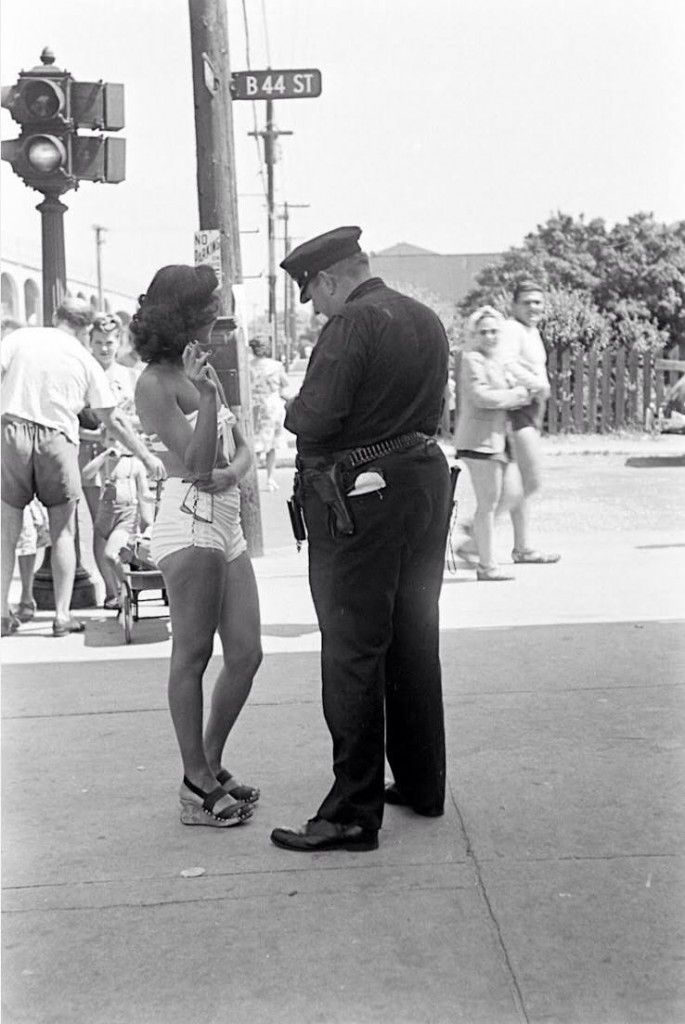
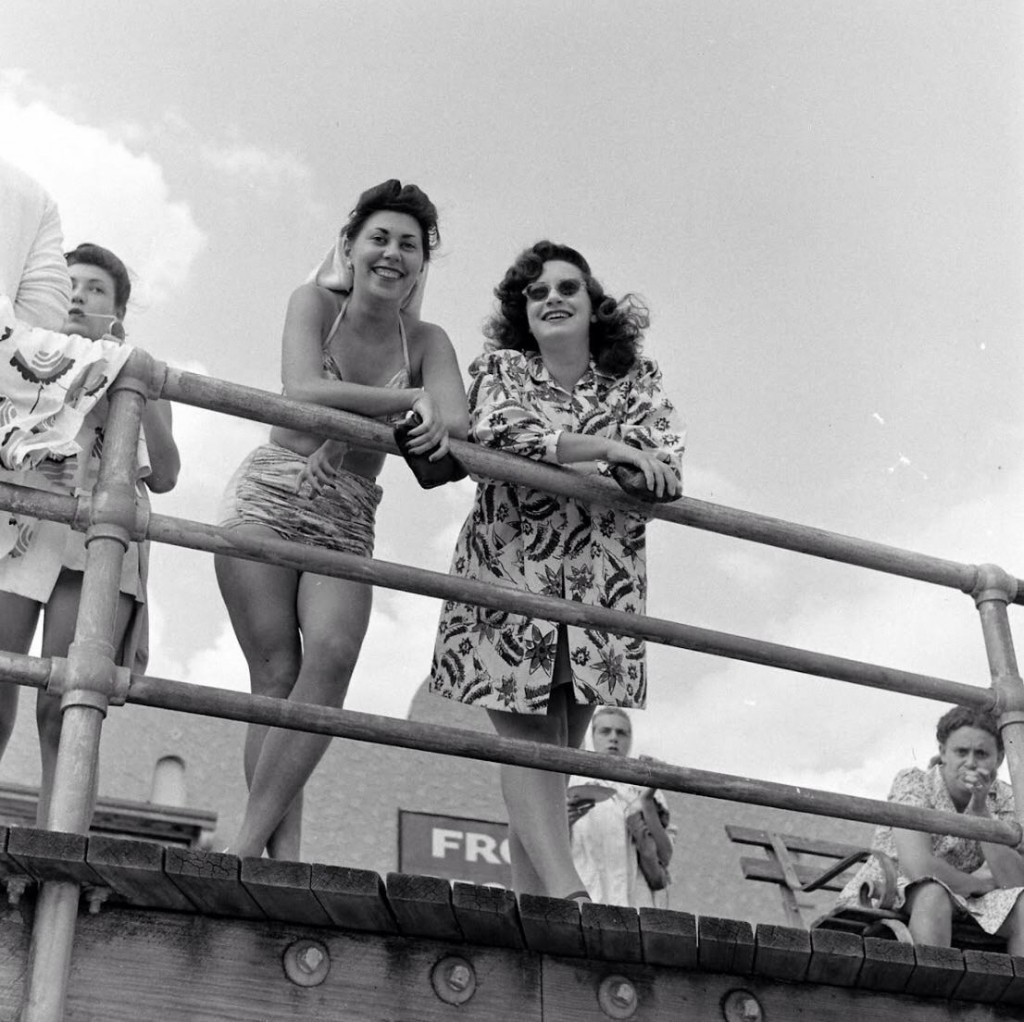
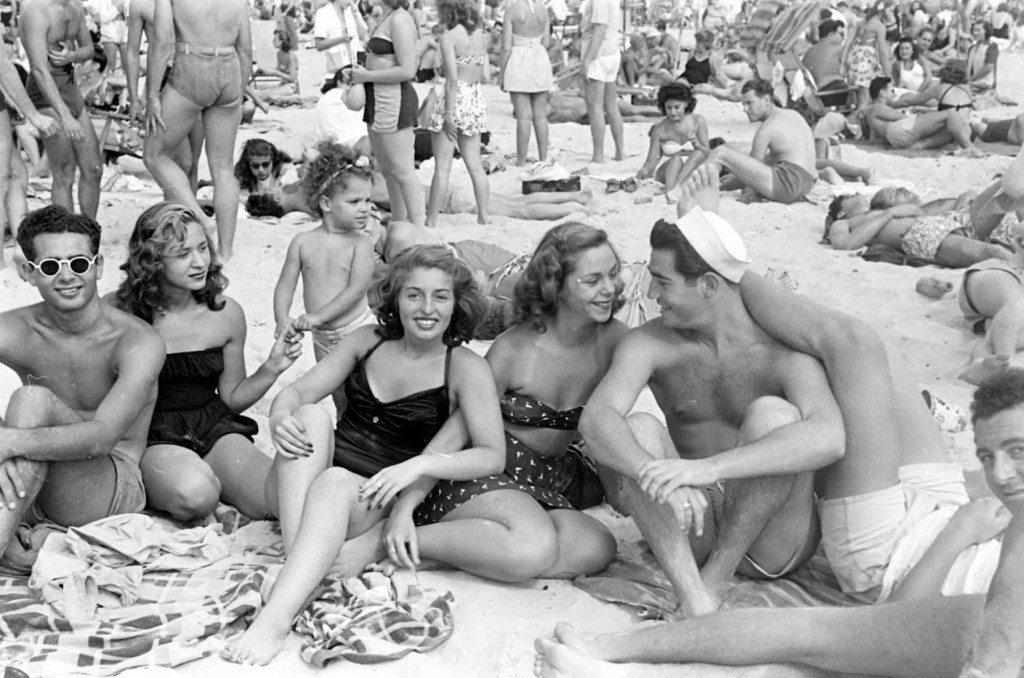
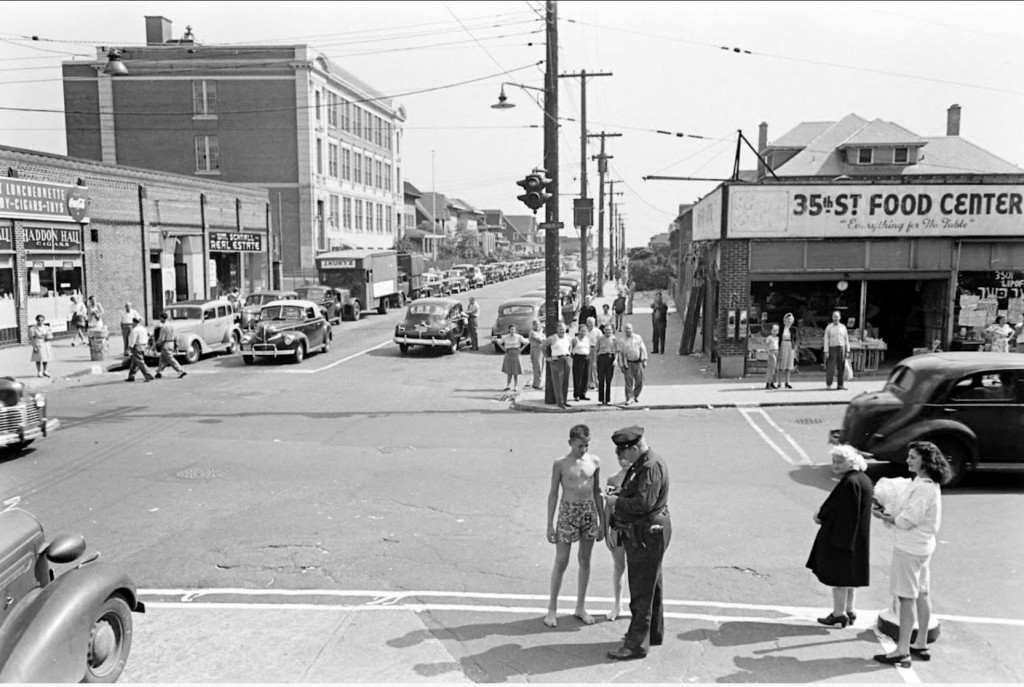



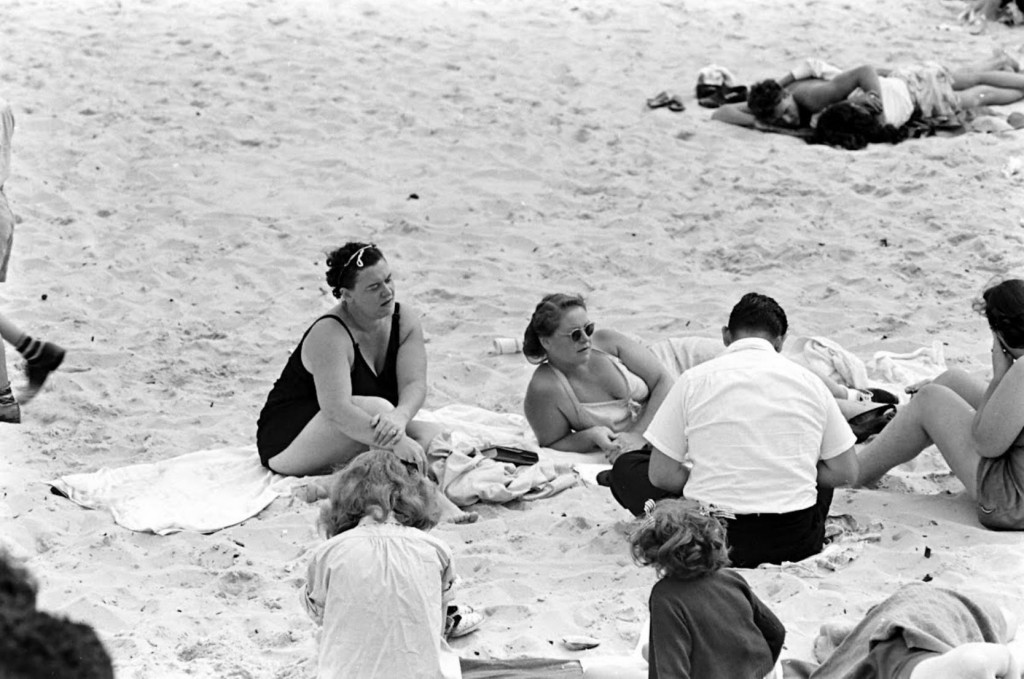
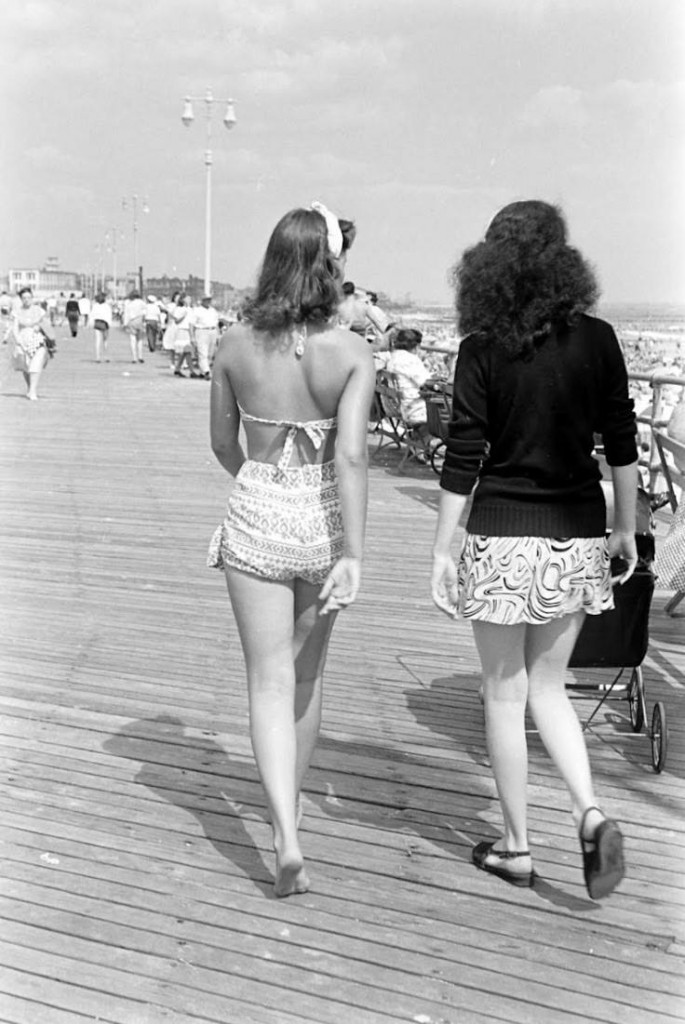
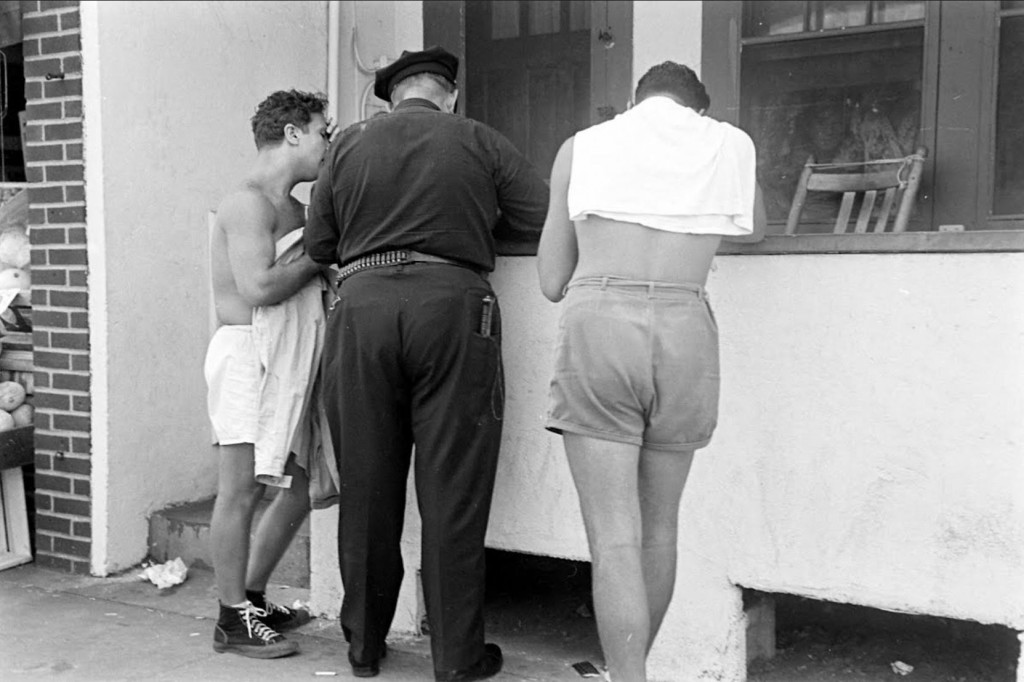
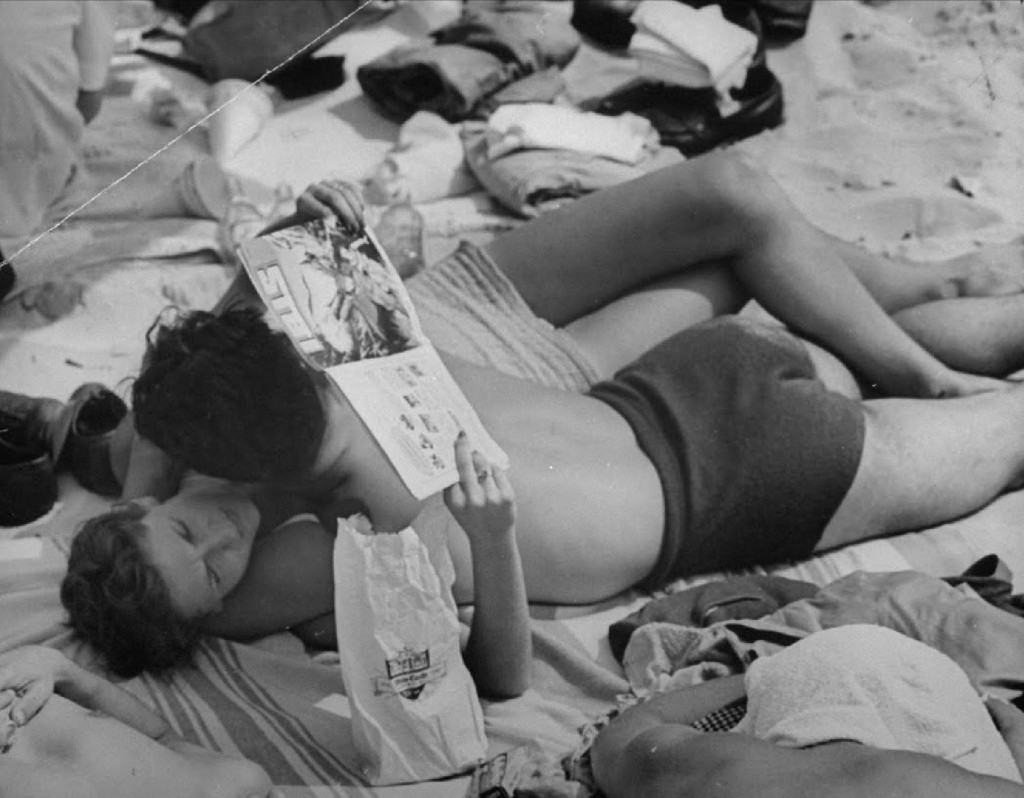
(Photo credit: Sam Shere / LIFE Magazine / Article based on Invisible Lines in the Sand: Bather Arrests in Early 20th-Century Los Angeles by Elsa Devienne and translated by Oliver Waine / metropolitics.org / Thermnagency.com).
